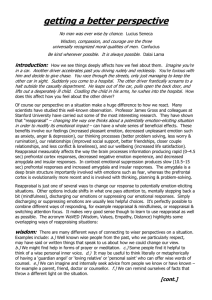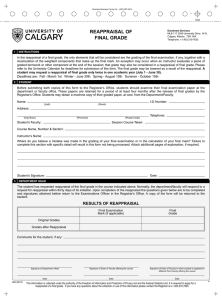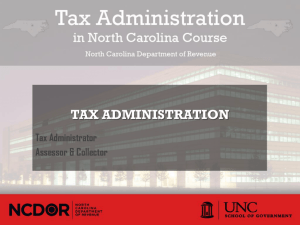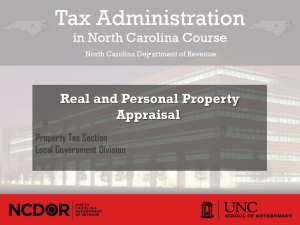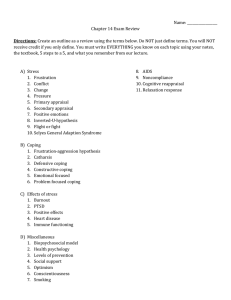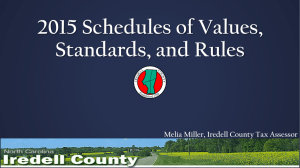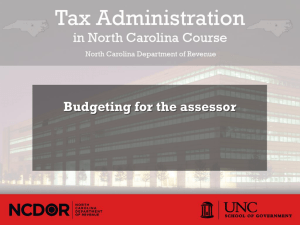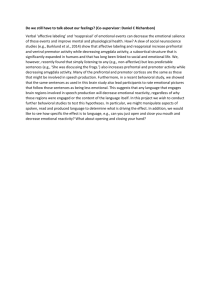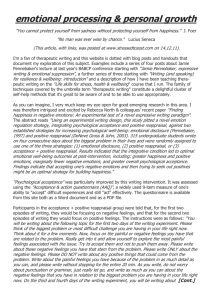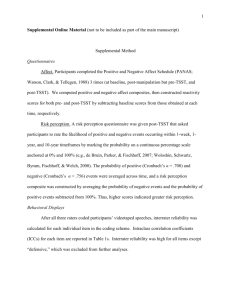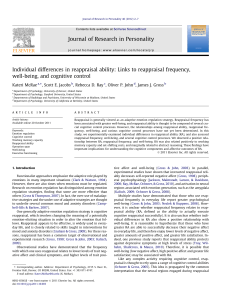Property Tax Appeal Rights in Mecklenburg County, NC
advertisement
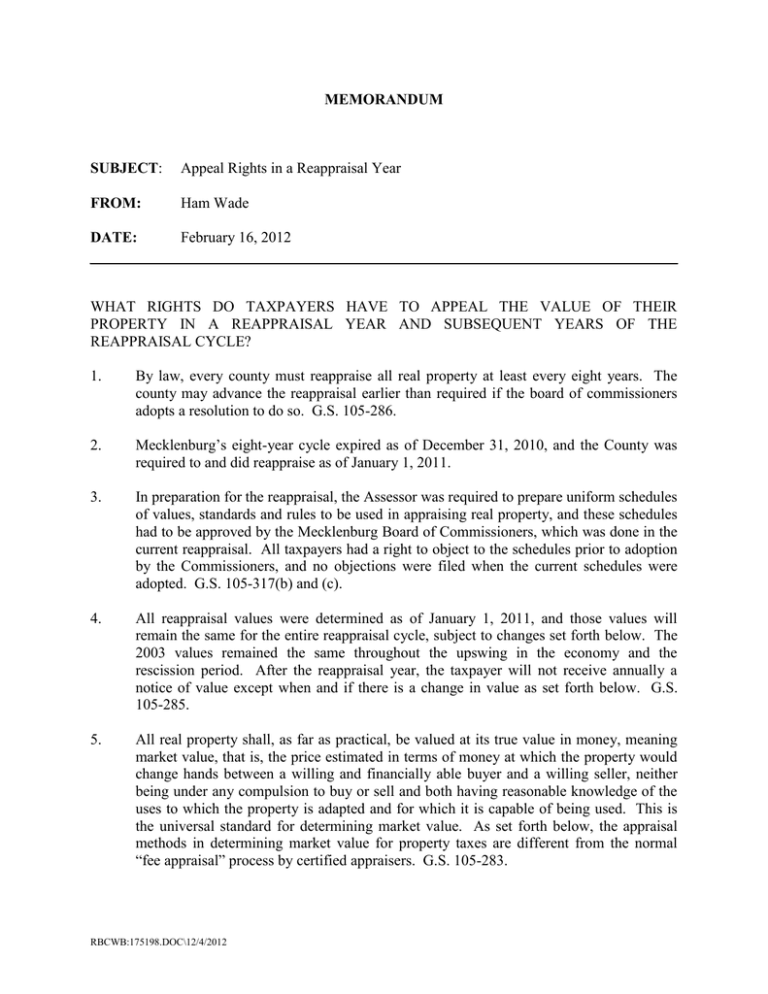
MEMORANDUM SUBJECT: Appeal Rights in a Reappraisal Year FROM: Ham Wade DATE: February 16, 2012 WHAT RIGHTS DO TAXPAYERS HAVE TO APPEAL THE VALUE OF THEIR PROPERTY IN A REAPPRAISAL YEAR AND SUBSEQUENT YEARS OF THE REAPPRAISAL CYCLE? 1. By law, every county must reappraise all real property at least every eight years. The county may advance the reappraisal earlier than required if the board of commissioners adopts a resolution to do so. G.S. 105-286. 2. Mecklenburg’s eight-year cycle expired as of December 31, 2010, and the County was required to and did reappraise as of January 1, 2011. 3. In preparation for the reappraisal, the Assessor was required to prepare uniform schedules of values, standards and rules to be used in appraising real property, and these schedules had to be approved by the Mecklenburg Board of Commissioners, which was done in the current reappraisal. All taxpayers had a right to object to the schedules prior to adoption by the Commissioners, and no objections were filed when the current schedules were adopted. G.S. 105-317(b) and (c). 4. All reappraisal values were determined as of January 1, 2011, and those values will remain the same for the entire reappraisal cycle, subject to changes set forth below. The 2003 values remained the same throughout the upswing in the economy and the rescission period. After the reappraisal year, the taxpayer will not receive annually a notice of value except when and if there is a change in value as set forth below. G.S. 105-285. 5. All real property shall, as far as practical, be valued at its true value in money, meaning market value, that is, the price estimated in terms of money at which the property would change hands between a willing and financially able buyer and a willing seller, neither being under any compulsion to buy or sell and both having reasonable knowledge of the uses to which the property is adapted and for which it is capable of being used. This is the universal standard for determining market value. As set forth below, the appraisal methods in determining market value for property taxes are different from the normal “fee appraisal” process by certified appraisers. G.S. 105-283. RBCWB:175198.DOC\12/4/2012 December 4, 2012 Page 2 _________________________ 6. In a reappraisal year, or if a value is changed in a non-reappraisal year, the taxpayer has a right to a hearing before the Board of Equalization and Review to contest the value. The appeal must be filed prior to the adjournment of the Board of Equalization and Review which must be prior to June 30. [Adjournment for tax year 2012 was June 4, 2012] Tax values are presumed to be correct and the taxpayer has the burden of producing competent, material and substantial evidence tending to show that the assessor either used an arbitrary method of valuation or an illegal method of valuation and the resulting value substantially exceeded the new value. G.S. 105-322, In re: Appeal of Amp, 287 NC 547 (1975). 7. Taxpayers have a right to appeal the value in any year of the reappraisal cycle but the date for determining value will remain as January 1 of the reappraisal cycle, and the standard of review and the burden of the taxpayer changes after the first year of the reappraisal cycle. In a non-reappraisal year, the taxpayer must first establish that there is a change in value resulting from one or more of the following reasons and then provide evidence of the actual value resulting from those reasons: a. To correct a clerical or mathematical error. b. To correct an appraisal error resulting from a misapplication of the schedules, standards and rules. c. To recognize a change resulting from a conservation or preservation agreement. d. To recognize a change resulting from a physical change to the land or improvements. e. To recognize a change due to the legally permitted use of the property (change of zoning, etc.). f. Normal physical depreciation, inflation or deflation or other economic changes affecting the county in general, or betterments to the property such as repainting, terracing, landscaping, etc. are not a basis for determining a change in value. G.S. 105-287. As can be seen, the burden of the taxpayer changes dramatically after the reappraisal year. The most common basis for justifying a change in a non-reappraisal year is a misapplication of the schedules, standards and rules evidenced above or perhaps a physical change to the land or improvements. 8. The method of appraisal used by the Assessor is referred to as the “mass appraisal system”. It would be an impossible task for any county to conduct an appraisal of each RBCWB:175198.DOC\12/4/2012 December 4, 2012 Page 3 _________________________ property similar to the types of appraisals used by fee appraisers. By statute, the Assessor is required to consider the 3 approaches to determining value (cost, market, income) and choose the appropriate method for the particular property that is appraised. It is beyond the scope of this Memorandum to describe in detail the overall methodology, but suffice to say that although the directive to obtain market value is the same, the methodology of getting to that point is quite different from standard appraisal procedures. CONCLUSION A taxpayer may contest the value of his/her property during any year of the reappraisal cycle, but the date as of which the value is to be determined is January 1, 2011. In a nonreappraisal year, there must be a basis or a factor which warrants a change in value pursuant to G.S. 105-287. Any changes made during the reappraisal cycle apply only to the year in which the change occurs and any remaining years in the cycle. The Assessor has the right to make changes on his own prior to the convening of the Board of Equalization and Review (G.S. 105325), and in Mecklenburg County, the Board of Equalization and Review can make changes while it is convened and after it adjourns. HLW:sm RBCWB:175198.DOC\12/4/2012
